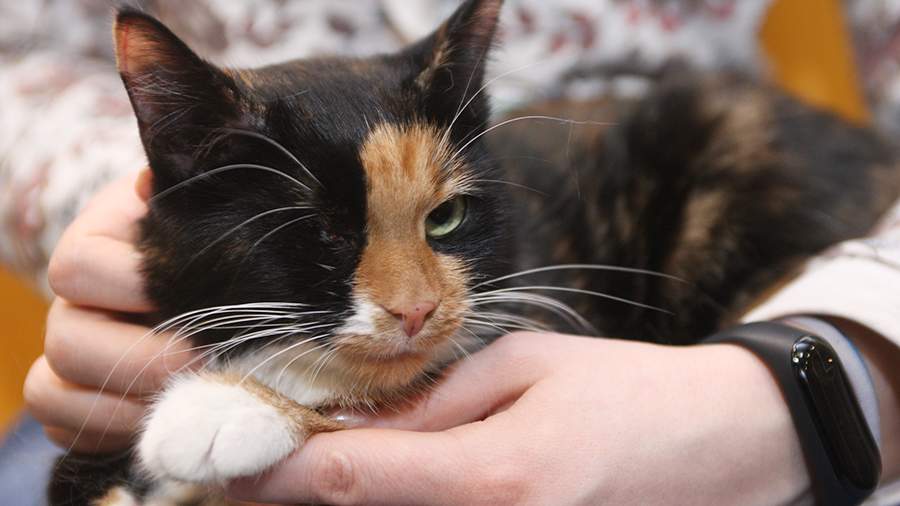How to deal with cat stress - practical advice for owners

Stress in pets is one of the frequent problems faced by their owners. Despite their outward independence and calmness, cats are no less susceptible to it than other pets. The danger of this condition is that it can lead to the development of various diseases and behavioral problems. How to recognize the signs of stress in a cat and help to cope with it, read in the material "Izvestia".
Causes of stress in cats
Stress is a natural reaction to external stimuli. Timely attention and correct actions on the part of the owner can not only relieve acute manifestations, but also prevent serious problems with the health of the pet. Understanding the causes of stress is the first step to solving the problem.
In cats, it can be caused by various factors. In the first place in terms of the degree of influence - changes in the familiar environment. Moving, repairing the apartment or even rearranging the furniture can cause anxiety in a cat. These animals are tied to a certain territory, and any deviations from the "standard" are perceived by them as a threat.
Another stressor is a change of environment. The appearance of a new pet or person in the house can cause stress. This is especially true for cats that are not used to living in a large family.
Cats have excellent hearing, so sharp, loud sounds, such as fireworks, construction work, music, can make them very nervous. Mistreatment, aggression, harsh training, and improper approach to the animal can also lead to chronic stress. Another possible cause is chronic illness, injury, and poor health.
Signs of stress in a cat
In order to start fighting the consequences of stress in time, it is important to be able to recognize its signs. The owner should be alarmed if the previously calm animal begins to demonstrate anxiety. The cat may begin to behave aggressively with the owner or other animals, meow for a long time or hide in secluded corners.
Stress can lead to a change in appetite. In this state, the cat may refuse food or, conversely, eat more than usual.
Another symptom is "misfires" in the use of the toilet, when the animal begins to deliberately mark the territory or urinate past the litter box. Being in an anxious state, the cat may constantly lick itself, which in turn is fraught with baldness or skin irritation.
Owners should also be alerted to unusual laziness or hyperactivity - some cats under stress become too active, while others, on the contrary, become lethargic and tired.
How to help a cat cope with stress
In order to help a cat cope with stress, it will be helpful for owners to establish a clear daily routine for the cat, setting precise times for feeding, playing and resting. Cats feel more comfortable when they know what to expect. Also, to prevent stress in cats, it is necessary to maintain cleanliness and order in the house, especially in the litter box area.
It is necessary to give the animal a personal space where it can hide from noise and extraneous attention. A secluded corner or a special cat basket will do, but it is very important that this place was accessible only to the four-legged owner.
When there is a move or renovation to be made, it is necessary to reduce stress for the cat as much as possible. During global changes, you should limit her access to "problem areas" so she can adapt gradually.
If there are frequent visitors to the house or a new addition to the family with a child or another new pet, the cat should be socialized gradually, allowing it to be alone for a while.
Another way to ensure not only the physical, but also the psychological health of the pet is a balanced and quality food. Some of them contain ingredients that help relieve stress, amino acids or vitamins that calm the nervous system.
Cats are active and playful creatures. Therefore, it is important to pay attention to regular games that will help relieve tension and distract the animal from stressors. It is useful to diversify the games with toys, so that the little predator can develop its hunting instincts.
In addition, to combat anxiety and stress, there are special products containing synthetic feline pheromones. They help animals feel calmer, creating a sense of security.
If signs of stress persist for a long time or are accompanied by other symptoms such as heavy shedding, weakness, or lack of coordination, a veterinarian should be consulted. In some cases, stress can be caused by physical ailments that require medical attention.
Combating stress in cats requires a comprehensive approach. After all, it can not only cause behavioral problems, but also lead to chronic diseases. Attention to the psycho-emotional state of the pet, creating a comfortable environment and regular visits to the veterinarian are key measures to maintain its health and well-being.
Earlier "Izvestia" told how to cope with stress in a dog.
Переведено сервисом «Яндекс Переводчик»
